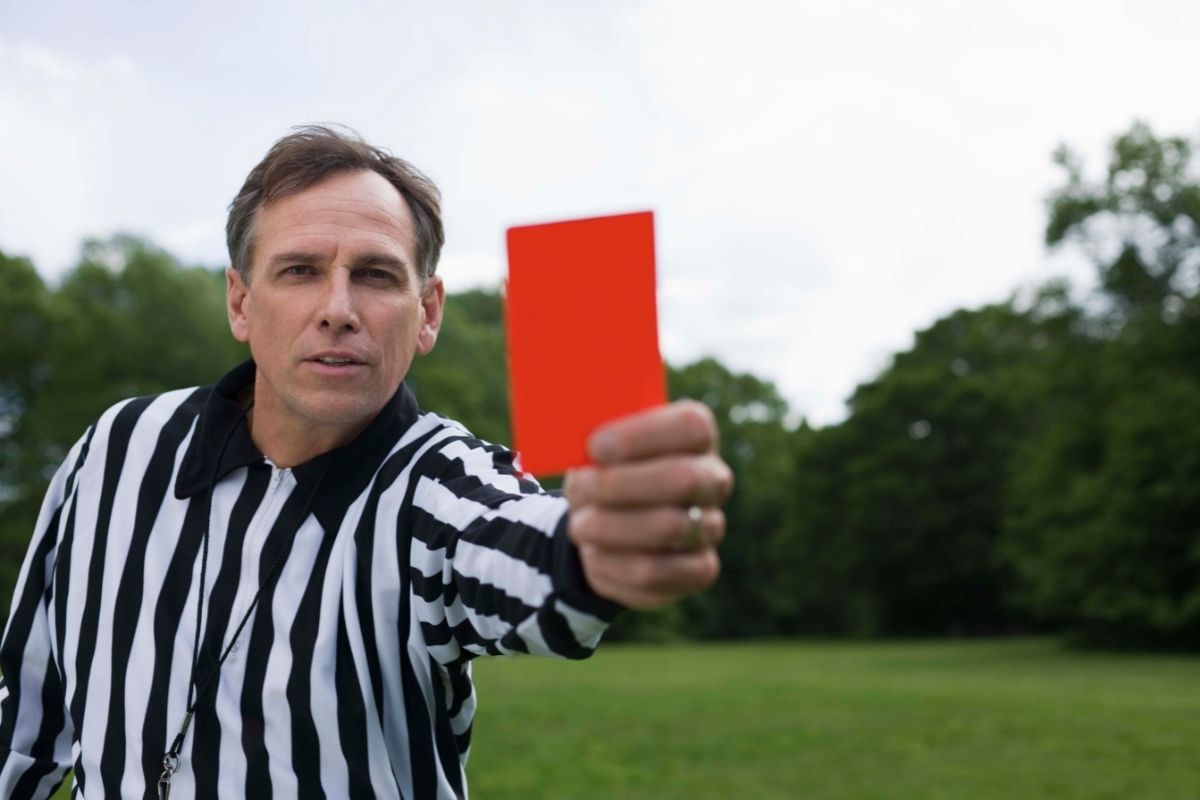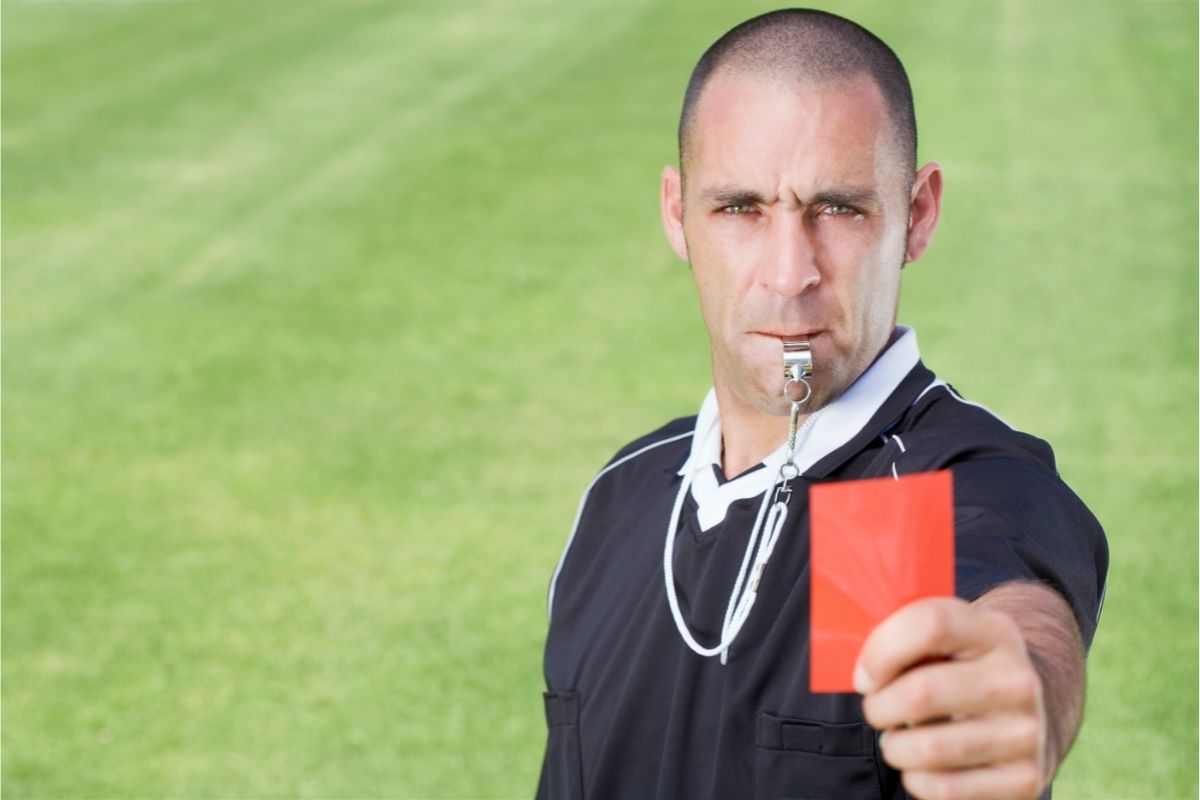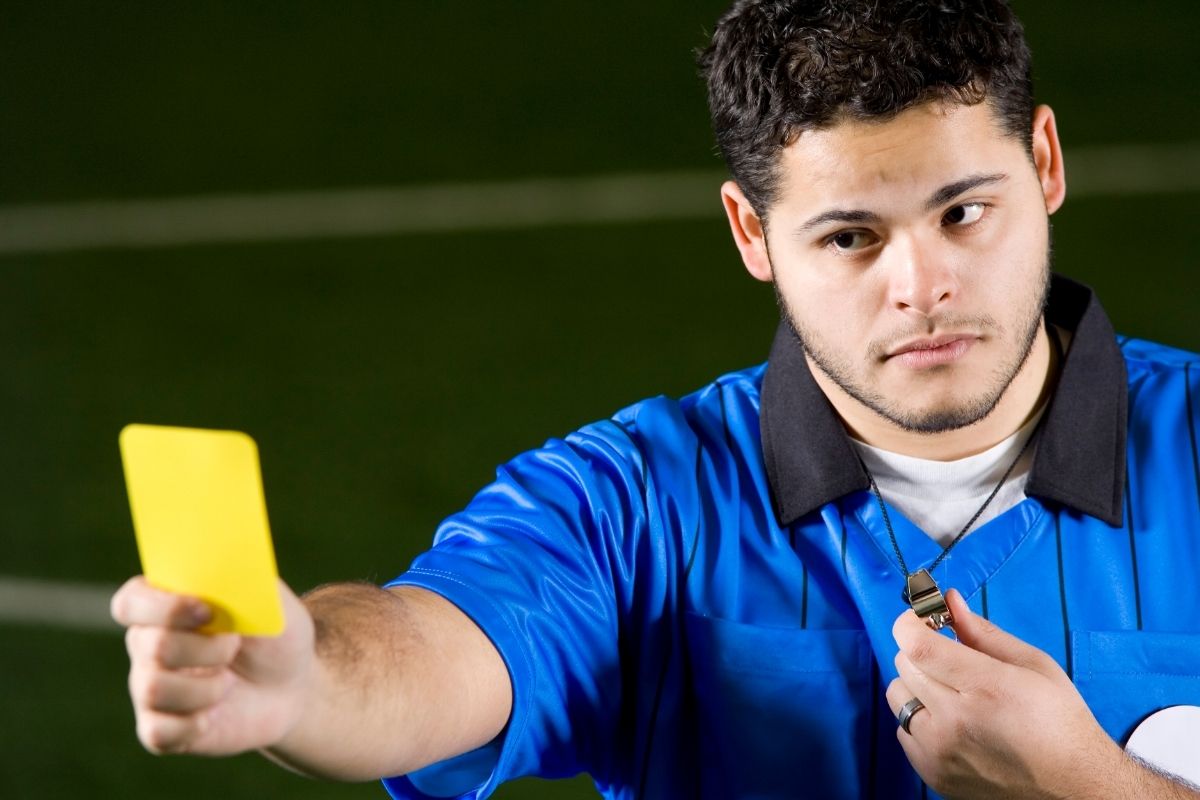Referees play a vital role in soccer. They manage the players on the pitch, make judgment calls about plays, and – most importantly – they punish players for misconduct and poor behavior.
But who manages the referees? And can a referee ever get a red card? Don’t worry – we’ve got the answers to all your questions right here!


In this article, we’ll take a look at whether or not referees can get a red card in soccer, as well as if it’s ever actually happened.
We’ll also take you through who would give the red card to a referee, along with the other punishments referees can face for misconduct.
So read on, and we’ll find out if a soccer referee can get a red card!
Can Referees Get Red Or Yellow Cards In Soccer?
So can a referee actually receive a red card themselves? Well, the short answer is no, they can’t. However, there have been some occasions where referees have committed offenses that justified a red card.
Normally, only the players, substitute players, managers, and other team officials are able to receive a red card. But despite this, there have actually been a couple of cases where a referee was given a red card and sent off the pitch.
This means that, while a referee shouldn’t technically be able to get a red card according to the rules of soccer, some rare circumstances have led to it happening anyway!
Referee Misconduct
The rules around referee misconduct on the field aren’t clearly defined, but for the most part, it comes down to common sense.
In general, any egregious misconduct that would cause a player to get a red card would be also classed as misconduct for a referee.
This includes aggressive and violent behavior or offensive language (such as racist or homophobic insults).
Other off-pitch actions like game-fixing can also be classed as misconduct and lead to sanctions, but this is completely separate from misconduct on the pitch and red cards wouldn’t come into play here.
Of course, whether or not a referee is penalized during a game comes down to the judgment of the other officials presiding over the match.
Referees are given the power to punish players for misconduct, and other officials in a game of soccer don’t have the same power to enforce disciplinary action. This is where things can get a bit complicated.
Who Would Give A Referee A Red Card?
So if referees are meant to be the people that enforce the rules and disciplinary actions of players, who is meant to manage the referees?
Well, the referees aren’t actually the only officials on the pitch that can hand out red cards. Larger league games will typically have a second referee, either on the pitch or on the sidelines as a substitute.
Additionally, assistant referees on the sidelines will be able to call fouls and address misconduct on the pitch.
This means that, if a referee were to commit an offense that justified being removed from a game, these other referees would be able to give them a red card. However, this has never actually happened in a game of soccer.
Instead, the more likely outcome is that a referee will give themselves the red card.


Has A Soccer Referee Ever Gotten A Red Card?
A referee giving themselves a red card might seem unlikely, but it’s actually happened before. In fact, the two recorded cases of a referee being given a red card involved the offending referee giving the red card to themselves!
The first time a soccer referee sent themselves off the pitch for misconduct was in 1998.
Referee Melvin Sylvester was officiating a match between Southampton Arms and Hurstbourne Tarrant when a player shoved him from behind; in retaliation, Sylvester attacked the player and punched him in the head several times.
Immediately afterward, Sylvester gave himself a red card and left the pitch, where he was replaced by a spectator until the end of the match.
The second occasion didn’t involve physical violence but still resulted in the referee dismissing himself from the match.
Andy Wain was presiding over a match between Peterborough North End and Royal Mail AYL in 2005, and lost his temper when the players kept arguing with his decisions.
After one too many protests from one of the goalkeepers, Wain aggressively threw off his whistle and got in the player’s face. While he didn’t actually assault the player, Wain still presented himself with a red card.
What Punishments Can A Referee Get For Misconduct?
Seeing as a referee doesn’t play the same role in soccer as the players, punishments for misconduct aren’t the same when it comes to red cards.
The most common disciplinary actions facing an offending referee are fines or suspension. For example, following Melvin Sylvester’s self-presented red card, he was fined £20 by the Hampshire Football Association and given a 6-week ban from officiating matches.
In rare occasions of referee misconduct, such as bribery and match-fixing, the referee can be demoted or even fired from their position.
Luckily, instances of referee misconduct are rare and they continue to uphold a high standard in soccer matches. While player misconduct and referee misconduct are dealt with differently, they both result in swift disciplinary action and accountability.
Final Thoughts
While referees might not be able to receive a red card according to the rules of soccer, this hasn’t stopped it from happening in the past!
Cases of referee misconduct aren’t common and the rules surrounding it can be pretty confusing; with that said though, soccer referees can be (and are) held to the same standards as the players.
So just because a referee can’t normally receive a red card, some types of misconduct justify their use.
Referees are meant to enforce the rules of the game, and this includes for the referees as well – if a referee commits a red card offense, then they can definitely give a card to themselves!
- Can You Play Pickleball on Grass? Tips and Tricks - June 12, 2023
- Do Pickleballs Wear Out? Everything You Need to Know - June 12, 2023
- Can You Play Pickleball on Concrete? A Guide to Playing on Hard Surfaces - June 12, 2023








